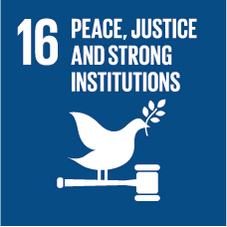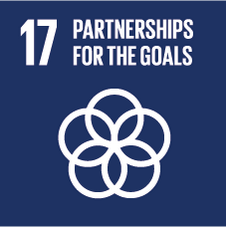Anti-corruption
UN Global Compact
Principles
Principle 10:
Businesses should work against
corruption in all its forms,
including extortion and bribery.
Preventing and fighting corruption
Nornickel’s delivering on strategic goals
is based on the trust and engagement
of shareholders, investors, partners, employees, state, Russian and international business communities, and
society
in the Company’s operations. Therefore, corruption of any nature is unacceptable. 103-2
The Company consistently builds
the compliance framework focusing on priority anti-corruption areas, key actions and the role of the
governance bodies.
In September 2017, the Board of Directors approved the revised
Anti-Corruption Policy of MMC Norilsk Nickel that applies to the Company’s representatives and contractors,
including foreign public officials
and officials of international public organisations. The respective responsibilities are stipulated in
agreements made with contractors
or expressly provided for by
the applicable laws.
Russian companies in the Norilsk Nickel Group adopt and implement their own anti-corruption regulations that
are
in line with the Company’s anti-corruption policy.
The Company takes all the necessary and reasonable steps to cause organisations in the corporate structure
and located outside Russia, to comply with the key principles and requirements of the anti-corruption
policy.
The Company assesses corruption risks on an annual basis, conducting quarterly risk monitoring. In 2017,
corruption risk assessments were performed across
all the Group’s business units and companies. No confirmed incidents
of corruption were identified. 205-1
When recruited, all of the employees
are familiarised with the corporate Anti-Corruption Policy and related regulations, and starting 2015, sign
addenda to their employment contracts that set out anti-corruption responsibilities.
The Group has the e-learning course
On Preventing Corruption in place for new employees. As at the end of 2017, the share of employees informed
about the Group’s existing corruption prevention policy exceeds 99%. In 2017, the dedicated training on the
requirements and provisions of the corporate anti-corruption regulations was received
by 2,093 people (2.79% of the Group’s employees as at the end of 2017)1. 205-2
One of the key elements in preventing corruption is the timely prevention
and resolution of conflicts of interest.
To disclose information about the conflict of interests, all candidates for vacant positions and employees
in the cases
set out in the by-laws, fill in the relevant declaration form. The Company also took steps to prevent
possible conflicts
of interests involving governance.
From December 2016, members
of the Company’s governance bodies
are required to submit information
on relatives and family annually.
All measures combined, undertaken
in order to identify and prevent conflicts
of interest, minimise the probability
of negative consequences for
the Company.
The Company’s anti-corruption initiatives are regularly covered in corporate press releases. The Company
maintains the Preventing and Fighting Corruption
page on the corporate website
www.nornickel.ru containing information on anti-corruption regulations adopted, measures taken, preventive
procedures introduced, legal training sessions organised and law-abidance awareness among staff and
counterparties.
To enhance the existing compliance procedures, in 2018, the Company plans to launch an anti-corruption
induction training for new employees, to streamline business unit performance monitoring, counterparty due
diligence control, review of by-laws and distance training
in anti-corruption policy for personnel.
Creating awareness and training of employees in the existing corruption prevention policies and methods in
2017, by region
| Indicator |
Norilsk Industrial District |
Krasnoyarsk Territory (excluding the Norilsk Industrial District) |
Kola Peninsula Industrial District (Murmansk Region) |
Moscow and other regions of Russia |
Trans-Baikal Territory |
Total |
| Number of employees informed about the Group’s existing corruption prevention policies and
methods, persons
|
49,955 |
3,552 |
12,945 |
4,612 |
3,254 |
74,318 |
| Share of employees informed about the Group’s existing corruption prevention policies and
methods, %
|
100.00 |
100.00 |
100.00 |
99.00 |
100.00 |
99.80 |
| Number of employees trained in the existing corruption prevention policies and methods,
persons
|
215 |
92 |
29 |
275 |
1,482 |
2,093 |
| Share of employees trained in the existing corruption prevention policies and methods, % |
0.43 |
2.50 |
0.22 |
5.90 |
45.00 |
2.79 |
Creating awareness and training of employees in the existing corruption prevention policies and methods in
2017, by category
| Indicator |
Executives |
White-collar employees |
Blue-collar employees |
Total |
Number of employees informed about the Group’s existing corruption prevention policies
and methods, persons |
9,925 |
13,487 |
50,906 |
74,318 |
Share of employees informed about the Group’s existing corruption prevention policies
and methods, % |
99.00 |
99.00 |
100.00 |
99.06 |
Number of employees trained in the existing corruption prevention policies and methods,
persons |
345 |
606 |
1,142 |
2,093 |
Share of employees trained in the existing corruption prevention policies and methods, % |
3.40 |
4.50 |
2.20 |
2.79 |
1 Training and awareness campaign data in this section do not include PMSK incorporated in
late 2017.
Andrey Bougrov, the Company’s Senior Vice President:
- member of the Expert Council of the Presidential Anti-Corruption Directorate.
The Directorate’s main tasks are to support the President in his powers to carry out state anti-corruption policy; monitor within its powers enforcement of federal constitutional laws, federal laws, presidential executive orders, instructions and resolutions, on countering corruption; drafting proposals on anti-corruption matters for state bodies and local government bodies and organisations, and settling conflicts of interest; supporting the President within its powers to ensure coordinated functioning and cooperation between the state bodies, other state organisations, and local government bodies and organisations on anti-corruption matters.
- member engaged in B20’s anti-corruption task forces since 2013 (Head of B20's Transparency and Anti-Corruption Task Force in 2013; Co-Chair of B20’s Responsible Business Conduct and Anti-Corruption Cross-Thematic Group in 2016–2017);
Business 20 (B20) is an informal network of business associations, collaborating in order to maintain an ongoing dialogue between the business community, G20 governments, and relevant international institutions. At a respective national level, the B20 members are the recognised leaders, the most important ones able to maintain a permanent dialogue with the relevant authorities and to mobilise the private sector forces to contribute to the success of G20 efforts.
The main mission of B20 is to contribute to the development of a stable, sustainable and equitable world economic growth stimulating creation of jobs, to represent the interests of the national business communities in the dialogue with G20, and to ensure that the recommendations of the business community are reflected in the decisions of the G20 leaders and their subsequent implementation.
- representative of the Russian Union of Industrialists and Entrepreneurs (RSPP) engaged in groups and committees of the Business and Industry Advisory Committee to the OECD (BIAC): the Anti-Corruption Task Force and the Corporate Governance Committee.
The Business and Industry Advisory Committee to the OECD is a dedicated advisory body to the OECD and was established as an independent organisation to represent interests of the OECD member countries’ business community.
The committee’s mission is to underpin measures for enhancing transparency in global markets and promoting the private sector.
The BIAC members are largest national business associations of the OECD member countries, with the Russian Federation represented in the Committee by the Russian Union of Industrialists and Entrepreneurs.
- serves:
- member of the National Council on Corporate Governance at the Bank of Russia;
- Chairman of the Share Issuers Committee at the Moscow Exchange;
- Deputy Chairman of the RSPP’s Committee on Corporate Relations.
Anti-corruption matters are an integral part of the functions of other entities where Andrey Bougrov serves as a member.
Corporate Trust
Service
The Corporate Trust Service was established at Nornickel back in 2010
to ensure prompt response to reported violations, abuses and embezzlement. The Service’s geography covers
all business units of the Company and Group companies. The Service is governed by the Procedure on the
Corporate Trust Service of MMC Norilsk Nickel approved by the Company’s President. Report statistics are
submitted to the Audit
and Sustainable Development Committee of the Board of Directors and the Company’s operations on a quarterly
basis.
102-17
103-2
The principles underlying the Corporate Trust Service include:
- guaranteed confidentiality for everyone who does not wish
to disclose their personal data;
- independent consideration of reports;
- timely and unbiased consideration
of all incoming reports irrespective
of the position and employment period of the person mentioned therein.
Nornickel’s Corporate Trust Service: toll-free hotline available 24/7:
+7 800 700 1941 and +7 800 700 1945, email: skd@nornik.ru.
Information about the Corporate Trust Service is posted on the Company’s official website: www.nornickel.ru,
intranet site, salary slips, calendars, posters with the Service’s logo.
Any interested person may contact
the Service. After a report is registered
by an operator, the standard time until
the investigation results are reviewed
by the Head of the Service is 21 days except for reports that require immediate action or additional
investigation. If the report is found substantiated,
an inspection is run, and if a violation is confirmed, measures are taken to correct the situation,
eliminate any negative consequences, and notify functions
and officials. Head of the Service has processing performance of incoming reports as their individual
KPIs.
Corporate Trust Service reports management, items

Reports received in 2017,
items
(342 items in total)

Reports confirmed in 2017,
items
(92 items in total)

Anti-money laundering and counter-terrorist financing initiatives
As required under Federal Law No. 115-FZ On Anti-Money Laundering, and Combating the Financing of Terrorism dated 07 August 2001, the Company implements a set of anti-money laundering and counter-terrorist financing initiatives ("AML/CTF").
The main document regulating the Company's procedures for AML/CTF monitoring is the Internal Control Rules on Anti-Money Laundering and Counter-Terrorist Financing developed in compliance with the Federal Law requirements.
The key principle underlying the Company's AML/CTF monitoring practices is the engagement of all employees, within their competences, in identifying signs of money laundering and terrorist financing activities in counterparties' operations, and also in identifying operations subject to mandatory control.
The Company runs due diligence on all potential counterparties before signing contracts with them in order to check their reliability and identify entities and persons involved in extremist or terrorist activities.





